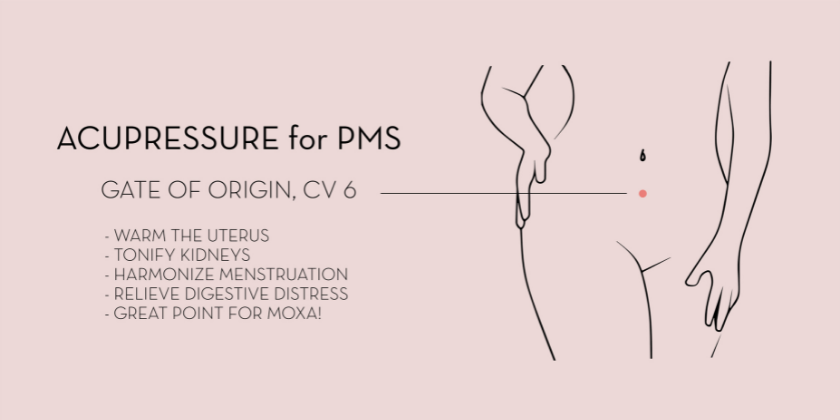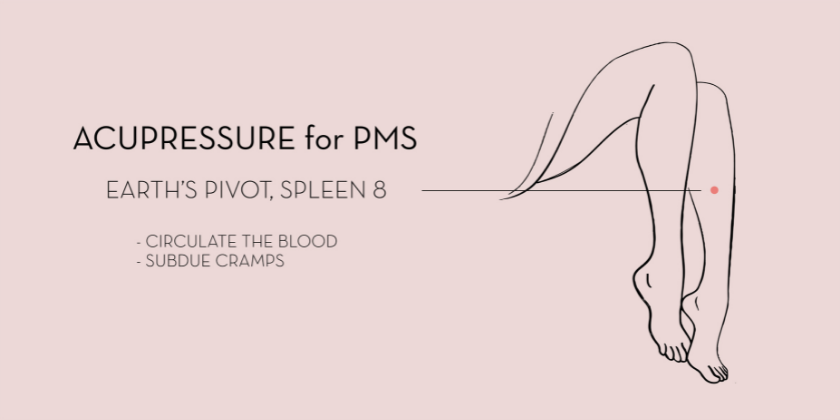If you live in a menstruating body, chances are you’ve learned to normalize a whole host of uncomfortable or debilitating symptoms that arise with fluctuations in your monthly cycle. And hopefully I’m not the first to tell you that it doesn’t have to be this way, nor should it.
Let’s Talk About Your Period
We are taught to believe that cramps, mood swings, breast tenderness, cravings, bloating, acne (the list goes on and on) are just an unavoidable part of this thing called “womanhood” (but perhaps “femalehood” is a more accurate term). This is an unfortunate and dangerous consequence of our male-centric (medical) paradigm.
Historically, medical research has left female bodies out of the picture for fear of “overcomplicating” the process. Apparently our cyclical dance of hormones is just too messy for the scientific method. Female bodies have been deemed “atypical” and “mysterious” since (at least) the time of Aristotle. When females are left out of medical trials (which was almost exclusively the case until the mid 1990s), we suffer the unnecessary ramifications in the form of improper, if not injurious, medical care and education.
If we are not taught to deeply understand, honor, and tend to the intricate processes of our bodies, how will we ever know what true health feels like? And when, to add insult to injury, we adopt habits and beliefs of coercion and denial of our needs in an effort to survive in a system designed for and by male-bodied folks, we may find ourselves in a perpetual state of dis-ease. Our hormonal rhythm is also being increasingly distressed by the ubiquitous and amplified presence of toxins in our environment, namely our water, soil, air, food, and homes.

The Female Body’s “Second Clock” - the Tide of Yin and Yang
Menstruating bodies operate according to something called an infradian rhythm - an internal clock that regulates our 28 day menstrual cycle, and has a profound impact on our neurology, metabolism, immune system, gut and reproductive health. In order to optimize our wellbeing, we need to learn to live in sync with our physiological cycles, in the same way we adapt our lives in accordance to the seasons of the Earth.
Chinese medicine recognizes 4 distinct phases of the menstrual cycle that represent the ebb and flow in the tide of Kidney Yin and Yang:
- Blood (menstruation) phase
- Yin (postmenstrual/Follicular) phase
- Yang (intermenstrual/Ovulatory + 1st half of Luteal) phase
- Qi (premenstrual/2nd half of Luteal) phase.
Akin to our own inner seasons, we move from Inner Winter in the Blood Phase through to Inner Autumn in the Qi Phase. During each phase, we are energetically and hormonally primed for certain physical activities, mental-emotional states, consumption patterns, and a variety of other lifestyle factors. We can choose foods, exercises, projects, and communication styles that best match our internal rhythm, augment our health, and cultivate harmony and ease.
PMS in the Qi Phase
Let’s zoom in on the Qi phase (days 22-28), which is likely where most of your worrisome symptoms arise (however, how we behave in all phases will have an impact on our experience in the Qi phase).
During this phase Yin decreases, Yang swells to a peak, and Qi is mobilized in preparation for menstruation. Your body depends on an abundance of Kidney Yang to warm the uterus for egg fertilization (should the possibility arise), and the activity of Liver Qi to move and regulate the Blood.
If Yang and Qi are insufficient during this phase, disharmonies of Cold, Blood stasis, Qi stagnation, Dampness, and Phlegm can arise. All of this equates to symptoms of PMS (i.e. cramping/pain, emotional instability, fatigue, brain fog, bloating, skin issues, breast tenderness), and subsequent irregular or painful periods.
We can use lifestyle adjustments, herbal formulas, and acupuncture to help regulate the Blood, encourage the free flow of Liver Qi, and warm the Uterus.

Say Goodbye to PMS: Tips and Tools for a Glorious Qi Phase
Nourishment: Metabolism is faster in the Qi and Blood phases, so it’s important to increase daily caloric load and stabilize blood sugar with nutrient dense foods rich in B vitamins, calcium, and magnesium, such as complex carbs and cruciferous veggies- Eat: Cauliflower, broccoli, collard greens, daikon, onion, parsnip, radish, squash, sweet potato, cinnamon; To warm the Kidney Yang: cloves, fenugreek seeds, fennel seeds, anise seeds, black peppercorn, ginger (preferably dried), cinnamon bark, walnuts, black beans, onions, quinoa, chicken, lamb, trout, and salmon.
- Avoid: excess dairy, cold and raw foods, alcohol, and stimulants like caffeine
- Herbal Medicine: Emotional Balance to keep the Liver Qi flowing
Exercise: Stay away from vigorous cardio in this phase, choosing instead to engage in 30 minutes or less of gentle Pilates, yoga, walking, or mild strength training.
Focus: Your energy may drop in concert with your plummeting hormone levels, so cutting down on socializing, setting boundaries, and focusing your attention on YOU is a great way to align with your physiology. Apply the energy you do have to organizing and completing projects.
Acupressure Points

Gate of Origin - Conception Vessel 4, and Sea of Qi - Conception Vessel 6: to warm the Uterus, tonify Kidneys, harmonize menstruation, relieve digestive distress, and more; a great point to moxa!

Three Yin Intersection - Spleen 6: as the meeting point of the Liver, Kidney, and Spleen meridians, this is a go-to point for gynecological (as well as digestive, urinary, and emotional) disorders.

Earth’s Pivot- Spleen 8: to circulate the blood and subdue cramps.

Great Rushing - Liver 3: to get that stagnant Qi coursing again; good riddance stress!
















